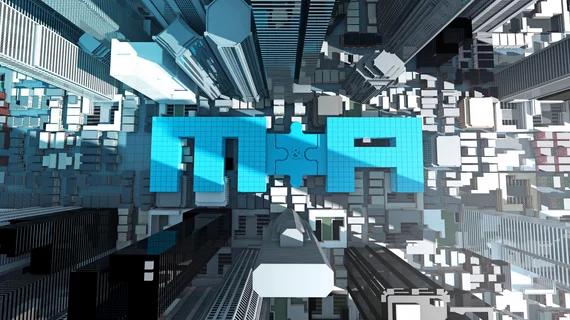RadNet seeing an uptick in radiology M&A, hospital joint-venture interest as COVID crisis cools
Investor-owned radiology firm RadNet said Tuesday that it’s seeing imaging volumes rebound in many markets, coupled with a notable uptick in merger and acquisition interest in the specialty.
At the peak of the pandemic up to this point, the Los Angeles-based imaging giant had recorded a roughly 70% slide in business in five core markets, when compared to “strong” daily volume in January and February. But currently, RadNet business is tracking at about 40% below historic levels, Chief Financial Officer Mark Stolper said during the Jefferies 2020 Virtual Global Healthcare Conference. “We’ve made a comeback,” he told attendees.
Stolper expects the coronavirus crisis to spur M&A and joint venture activity in the specialty, and his company is already at work on the deal-making front. (On a side note, RadNet also closed its acquisition of artificial intelligence firm DeepHealth this week.)
“We expect the pain and dislocation that COVID has caused to actually accelerate some of the discussions we’re having on the JV side, as well as the M&A side, and create more opportunities on the business development side,” Stolper said.
Most “mom and pop” practices that RadNet competes against are less capitalized and have had more difficulty managing their business through the economic downturn, he speculated. Plus, many hospitals have been “disproportionately” affected by decreases in volume, particularly on the outpatient side. Insurers are increasingly pushing care to freestanding centers in which RadNet specializes, making them an attractive partner for hospitals, Stolper said.
“I don’t care whether it’s radiology, laboratory, outpatient physical therapy, or urgent care—all of the nonacute services are really being directed to ambulatory centers, and it’s hard for me to believe that’s going to suddenly reverse itself, once the COVID period ends,” he said. “So, we’re seeing more and more interest from health systems who want to joint venture with us on outpatient centers and we’re very excited about that.”
On current volume levels, some modalities are recovering more quickly than others. Mammography is still down from pre-pandemic levels, while RadNet is seeing more stability in advanced imaging, such as PET/CT. The recovery has also varied by geography, Stolper added. Its home turf of California has been a “bright spot,” but the harder hit East Coast isn’t quite there yet.
If the revival continues on its current trajectory, he expects 2021 to be business as usual for RadNet.
“Imaging is not going anywhere, and it would not be a stretch to say 2021 will be a completely normal year for us,” Stolper said.
RadNet bills itself as the “leading” U.S. provider of freestanding, fixed-site imaging services, operating 335 such centers. The company also reported earnings results in May, noting that it has used employee furloughs and government assistance to weather the economic downturn.

